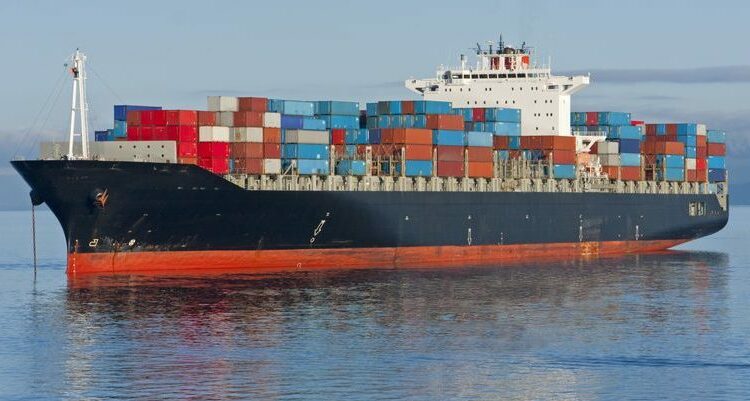Introduction to CMA CGM’s New Surcharge
Starting September 15, 2025, the French shipping company CMA CGM has implemented a Peak Season Surcharge (PSS) on shipments destined for Nigeria and several West African ports. This surcharge introduces an extra charge of $500 per 20-foot container for both dry and refrigerated cargo arriving from regions including North East Asia, South East Asia, China, Hong Kong, and Macau SAR. This move signals a fresh challenge for importers in Nigeria potentially facing an additional cost of up to N1 million per shipment, which inevitably influences the broader dynamics of international shipping and logistics in the region.
Details and Purpose of the Peak Season Surcharge (PSS)
The surcharge set by CMA CGM is described by the company as part of an ongoing effort to provide reliable and efficient services amidst unusual shipping conditions. While the exact reasoning behind the decision remains somewhat vague, this PSS is understood to be a temporary measure implemented by numerous shipping lines worldwide. Such charges often reflect specific operational difficulties or costs arising at destination ports, fluctuating fuel prices, or currency volatilities.
It’s important to distinguish between the PSS and other fees typically found on freight invoices, such as the freight rate itself, the Bunker Adjustment Factor (BAF) which deals with fuel price changes, and the Currency Adjustment Factor (CAF) that accounts for exchange rate shifts. Unlike these standard charges, the PSS is tied specifically to peak demand seasons and heightened operational challenges.
Table: Breakdown of Common Shipping Surcharges
| Tip suprataxă | Descriere | Typical Application |
|---|---|---|
| Peak Season Surcharge (PSS) | Additional fee during high cargo demand periods | Seasonal spikes in shipping activity |
| Bunker Adjustment Factor (BAF) | Adjustment for fuel price fluctuations | Variable fuel costs |
| Currency Adjustment Factor (CAF) | Adjustment due to currency exchange rate changes | Fluctuations in currency markets |
Impact on Nigerian Importers and the Shipping Industry
For Nigerian importers, the $500 PSS per container could mean a substantial increase in the landed cost of imported goods. Since Nigeria is a significant market for cargo from Asia and other regions, this surcharge raises concerns over price hikes and supply chain complexities. This can contribute to inflationary pressures on goods and compel importers to consider cost-saving strategies or alternative shipping options.
The Nigeria Shippers Council (NSC) has expressed its intention to engage with CMA CGM to seek a resolution, either through negotiating a reduction in the surcharge or advocating for its removal based on economic indicators. According to the NSC’s Director of Consumer Affairs, Celestine Akujobi, dialogue and regulatory considerations could offer pathways to mitigate the surcharge’s burden.
Why Temporary Surcharges Matter
- Flexibilitate operațională: Shipping lines often resort to temporary surcharges to cushion unforeseen costs or disruptions, such as port congestion or seasonal spikes.
- Market Signals: These charges inform stakeholders about capacity stress or regional logistical challenges.
- Financial Relief: Helps shipping companies maintain service levels without scaling back operations.
What This Means for Logistics and Global Freight Movement
The introduction of such a surcharge by a major global shipping player like CMA CGM serves as a reminder that logistics and freight forwarding constantly adapt to economic and operational realities. While the surcharge is currently targeted regionally, such adjustments can ripple across supply chains, affecting shipment planning, cost estimates, and delivery timelines.
For logistics providers and freight forwarders, understanding and anticipating these surcharges is essential. It highlights the need for agile transport solutions, optimized routing, and cost management practices. Platforms like GetTransport.com offer versatile cargo transportation services worldwide, combining affordability with a broad range of options—from household moves to large bulky goods transport—which can be vital in mitigating the surcharge impact on shipments.
List: Strategies to Manage Additional Shipping Surcharges
Exploring Practical Solutions and Personal Experience
While analyses and reviews of such surcharges offer valuable insights, nothing beats firsthand experience in navigating these changing cost structures. Every importer or shipper’s situation is unique—shipping volumes, cargo types, and destination specifics all influence outcomes. The beauty of using services like GetTransport.com is the ability to tailor your logistics needs with a range of affordable, transparent options. This empowers smarter shipping decisions without blowing budgets or risking delivery disappointments.
GetTransport.com stands out by providing access to global shipping offers, allowing users to compare prices and service quality with ease. Whether moving offices, ordering bulky freight shipments, or relocating homes, it offers a smooth, cost-effective pathway through the maze of modern forwarding challenges. Book your cargo transportation with GetTransport.com and experience convenience and efficiency first-hand.
In the grand scheme, CMA CGM’s new surcharge on Nigerian imports might not shake the entire global logistics sector at once but it certainly underscores how regional developments warrant attention from supply chain professionals globally. Staying attuned to such charges helps maintain smooth freight dispatches and delivery schedules—vital to business success in an interconnected world.
Rezumat
To wrap it up: CMA CGM’s announcement of a $500 Peak Season Surcharge on imports to Nigeria shines a spotlight on the sometimes unpredictable nature of freight pricing, especially in regions facing logistical hurdles. This additional fee, while temporary, increases costs for importers and adds another layer of complexity to shipping management. Regulatory responses like those from the Nigeria Shippers Council aim to moderate these fees and balance market realities.
For the broader logistics ecosystem, this case highlights the importance of flexible planning, cost control, and leveraging technology-driven cargo platforms to navigate changing freight landscapes. Solutions like GetTransport.com provide affordable, reliable, and global cargo transportation options that meet diverse shipment needs, from parcels and pallets to bulky international freight. The platform’s transparency and convenience can help importers and exporters alike to minimize costs and maintain reliable delivery schedules in today’s dynamic shipping environment.

 New CMA CGM Peak Season Surcharge Raises Import Costs for Nigeria, Affecting West African Shipping">
New CMA CGM Peak Season Surcharge Raises Import Costs for Nigeria, Affecting West African Shipping">